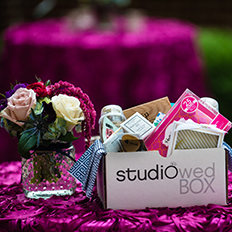Check out this helpful blog from Nashville PWG!

Traditionally, most wedding planning is handled by the bride, but there are a number of tasks that often fall to the groom to handle. In same-sex weddings, these tasks might be handled by the partner who doesn’t have the time, skill, or interest in handling the bulk of the planning. If you fit one of these roles, these are some of the tasks that might fall on you:
-Rings. While many ladies like to have input into the style of their engagement and wedding rings, it’s traditionally the groom’s responsibility to purchase them. For same-sex weddings, the couple often purchases rings for each other.
-Assisting with the guest list. One of your first tasks after getting engaged is to sit down with your future spouse and craft a guest list, narrowing it down as much as possible to help extend your budget per person.
-Discussing the budget with your family. Nowadays, many couples pay for their weddings themselves, but each of you should speak with your families to see if they’d like to contribute any funds, and if there are any conditions (such as specific guests you have to invite) that come along with that money.
-Selection of your wedding attendants. You and your future spouse need to discuss the size of your wedding party, and you then need to decide who you want to stand up with you.
-Choosing your attire. Your future spouse will probably want some input on this item, too, but the final selection and arrangements should be done by you.
-Buying gifts. You’re responsible for purchasing gifts for your wedding attendants and (if you desire) for your future spouse.
-Helping to plan the honeymoon. This is another task that many couples now do together, but it was traditionally handled by the groom. Don’t forget to plan for things like exchanging currency and getting current passports as needed, and you might want to contact your hotel for a special welcome gift to surprise your new spouse.
-Teaming up on song selection. Choosing songs for your reception entrance, your first dance, your dance with your mother, etc. will need your input.
-Acquiring the marriage license. Look into the marriage license requirements wherever you’re getting married and help take care of paying the fee and processing the application, then getting it to the officiant before the wedding.
-Rehearsal dinner planning. This is another traditional part of the wedding handled by the groom and paid for by his family, but that has changed over the years. Grooms should at least offer to handle the rehearsal dinner planning.
-Prepping day-of wedding fees for distribution. Prepare separate envelopes with checks or cash labeled with each vendor’s name so your best man can distribute final payments and gratuities on the big day.
-Writing a thank-you toast. It’s considered proper etiquette for the couple to give a toast at the reception thanking their families, their wedding party, and their guests for everything they did to make their day special.
These are the traditional wedding planning tasks for the groom, but the key is to make yourself available to help where it’s needed. If you have any thoughts on this or other wedding topics, please feel free to leave a comment!










